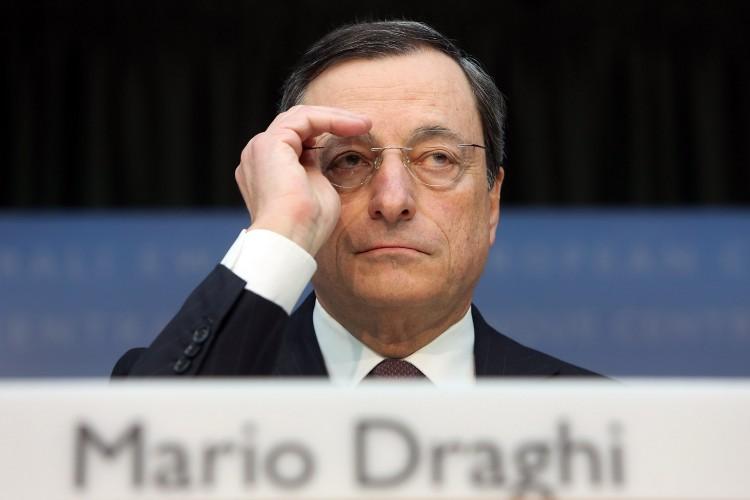
Mario Draghi, President of the European Central Bank (ECB), speaks to the media following a meeting of ECB leadership at the European Central Bank on Jan. 10 in Frankfurt. Hannelore Foerster/Getty Images
The European Central Bank kept the main refinancing rate steady at 0.75 percent. According to ECB president Mario Draghi, there are no immediate risks in Spain and Italy.





